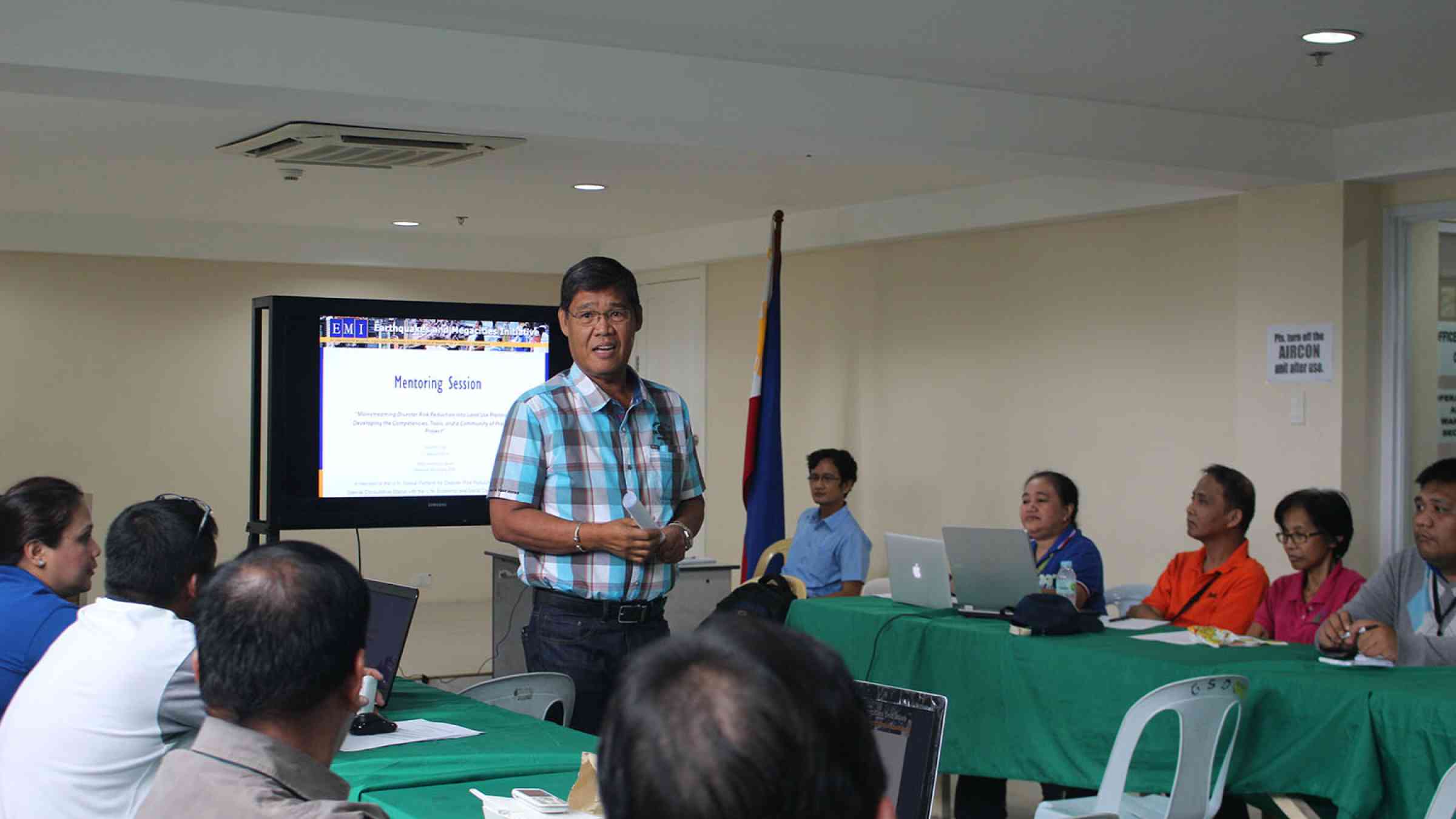Explore further
EMI is an international non-profit scientific non-governmental organization dedicated to advancing urban disaster risk reduction knowledge, policy and practice. It serves as a catalyst for the delivery of scientific and technical knowledge to the end-users, focusing its efforts on developing capacity in megacities and other complex urban centers of the developing world where the effects of earthquakes and other hazards could be devastating to people, economy, culture, and environment.
- Enabling local authorities and local actors in mainstreaming DRR through a participatory scientific approach that makes efficient use of existing resources
- Fostering a constructive sharing of knowledge and responsibility between all stakeholders to develop solutions that are locally owned and sustained
- Educating all stakeholders in understanding and interpreting the hazards and risks involved in their city and in developing options to reduce these risks
- Improving knowledge and capacity for risk assessment and disaster risk management
- Disaster risk management master planning
- Hazards, Vulnerability and Risk Assessments
- Building urban resiliency in critical services and infrastructure
- Risk-sensitive land use planning and urban (re) development
- Housing, Shelter and Slum risk reduction
- Legal and institutional arrangements for DRR
- International standards for Disaster/Emergency Management
- Indicators for Urban Resilience
- Training and capacity building
- Manages and maintains the Cluster Cities Project, which groups 20 megacities from around the world together with several academic and professional organizations
- Member of the U.N. Global Platform for DRR
- Member of the Partnership for Urban Risk Reduction (PURR)
- Member of the ISDR Asia Partnership
- Member of the Global Network for DRR
[email protected]
[email protected]
www.emi-megacities.org
- Works with several countries and cities to help them put in place legal and institutional framework for DRR and to undertake institutional strengthening under the framework of mainstreaming and building urban resiliency
Support local experts to undertake scientific risk assessment studies; supports the dissemination and sharing of risk assessment among stakeholders so that they can engage in DRR
A fervent advocates of urban and megacities DRR for more than a decade with a well-recognized agenda as contributor and facilitator. Supports a larger role in DRR for local governments and local actors. Maintains a website (www.emi-megacities.org) and a wiki platform (www.cityriskpedia.com) to share and disseminate knowledge
Through its disaster risk management master planning (DRMMP) model, EMI has helped the stakeholders of several megacities to rationalize the mainstreaming process and to develop ownership. The DRRM has resulted in major impact in introducing risk-sensitive land use planning in the Philippines and elsewhere; and in developing legal and institutional enabling environments
By developing methodology for the implementation of international standards for emergency management and developing capacity development programs to support stakeholders in adopting these standards, EMI has helped turn traditional response management into a tool for mainstreaming DRR
Training program through the Natural Disaster Risk Management Program (NDRMP) run in partnership with the World Bank Institute;
Partnerships with local government organizations and with other NGO's
Since 2009, EMI has participated in shaping the Resilient Cities campaign, developing a strategy and following-up on progress. EMI has foster city to city cooperation, including a city-to-city exchange between Makati and Kathmandu that focuses on risk-sensitive land use planning and land-pooling.
EMI members are represented at the Campaign Advisory Panel. EMI’s active participation in creating the Local Government Self Assessment Tool and the Handbook for Mayors has been of great value. EMI encourages city-to-city cooperation through their regular activities.
Voluntary Commitments
The Sendai Framework Commitments (SFVC) online platform serves to incentivize stakeholders to inform the public about their work, to provide a vehicle for sharing commitments and initiatives and for motivation toward the implementation of the Sendai Framework. In turn, UNDRR can monitor and take stock of the progress and impact.
Earthquakes and Megacities Initiative is involved in the following commitments:

